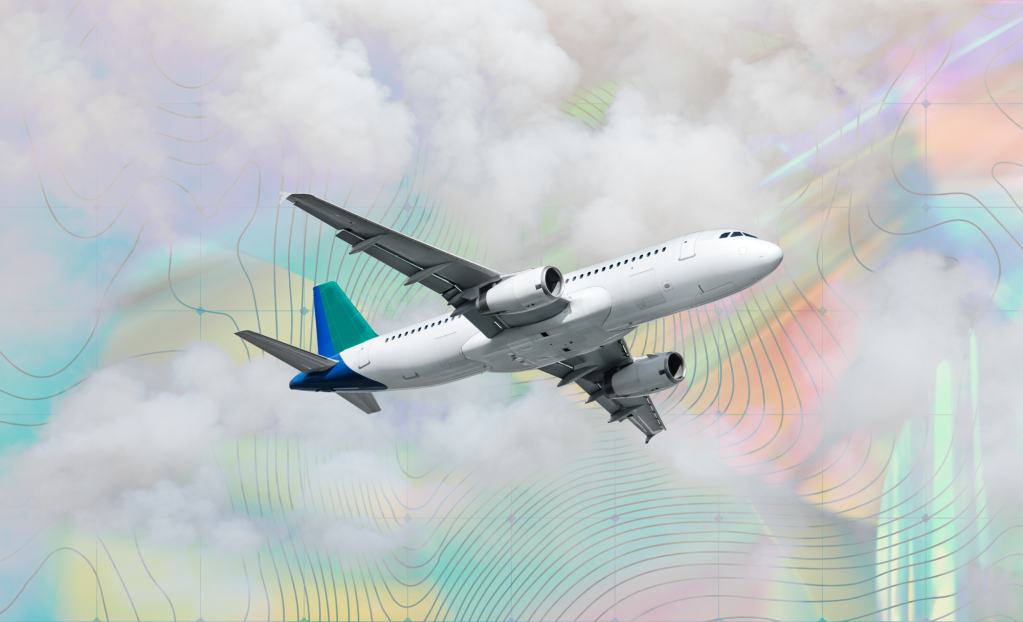443 insiders (and counting) press aviation leaders to accelerate climate action
Airlines should set absolute emissions targets and be prepared to limit growth, said employees of KLM, Air France and others. Read More

-
- The nonprofit group is known as Call Aviation to Action.
-
- Several of its demands are at odds with the industry’s current position on climate change.
-
- Environmental groups have pushed similar agendas but these inside-the-industry demands put companies under a different kind of pressure.
Staff at major aviation companies, including Air France, KLM, Airbus and Lufthansa, are among hundreds of industry insiders calling on their leaders to undertake dramatically more ambitious action on climate.
The demands, organized by a pressure group known as Call Aviation to Action (CAA), include several that are at odds with the industry’s position on climate change, such as setting absolute emissions reduction targets. Hitting such targets would likely require limiting service, another strategy at odds with current plans.
“Call Aviation to Action started because we discovered that there are many, many people in the industry who are really concerned about climate change, but also very committed to aviation, and who were not able to speak up,” said Karel Bockstael, an aviation consultant and former vice president of sustainability at KLM who initiated the project with four other aviation professionals.
The industry’s existing net-zero ambition rests in part on the Carbon Offsetting and Reduction Scheme for International Aviation (CORSIA), a 2016 agreement that requires participating airlines to cap emissions at 85 percent of 2019 levels. Any subsequent growth must be offset by purchasing CORSIA-approved carbon credits.
Around 30 airlines have also committed to near-term goals with the Science Based Targets initiative (SBTi), or had those goals validated by the organization. To align with warming of no more than 1.5 degrees Celsius, the SBTi requires airlines to reduce emissions intensity by 30 percent and 50 percent in 2030 and 2035, respectively.
Fossil fuels ‘until the end of time’
Neither standard is sufficient if the industry is to stay within planetary boundaries, say the 443 people who have signed the CAA’s statement since it was issued in May.
Bockstael argued that CORSIA is flawed because many offset projects have failed to deliver claimed climate benefits. “It will support the fossil kerosene solution until the end of time,” he said. “If we do that, then the growth will go on and at some point the availability of the offsets will not be enough.”
He praised the intent of the SBTi aviation standard, which requires that the industry as a whole stay within a total carbon budget identified as consistent with 1.5 degrees Celsius of warming. But CAA says the standard is undermined by overly optimistic assumptions about efficiency improvements and the idea that fossil jet fuel can be eliminated by 2050.
The organization argues instead that airlines should set a carbon budget for the industry — acknowledging a fair distribution of the budget across populations — then bring their goals in line with it. Signatories are also asking companies to lobby for regulation that “takes all players in our industry along in what is needed to respect the boundaries we are currently transgressing,” be more realistic about future technology gains and better manage demand, particularly in regions that have a larger share of historic emissions.
Insider influence
Environmental groups have long made similar demands, but the CAA is notable for its insider approach. Among the signatories are professionals working in supply chain, business development and strategy, as well as several pilots. Likely because of Bockstael’s connections, that includes more than 40 employees of KLM and Air France, Europe’s largest airline group.
“At KLM, we are doing everything we can to make flying cleaner, quieter and more fuel-efficient, step by step,” a company spokesperson told Trellis. “Making aviation more sustainable takes time, and progress isn’t as fast as we would like. But that doesn’t mean we’re standing still.” The airline is investing more than $8 billion in more efficient aircraft, the spokesperson added, and is one of the world’s largest purchasers of sustainable aviation fuel.
“The fact that the calls for change are coming from within the aviation sector and from the employees themselves and even some senior leaders is very promising,” said Deborah McNamara, executive director of ClimateVoice, a non-profit that supports employee-led climate action. “They’re the people who know what it’s like to work in this industry and who shape it.”
The group has continued to consult backers on next steps, which Bockstael said would be announced this fall.
















